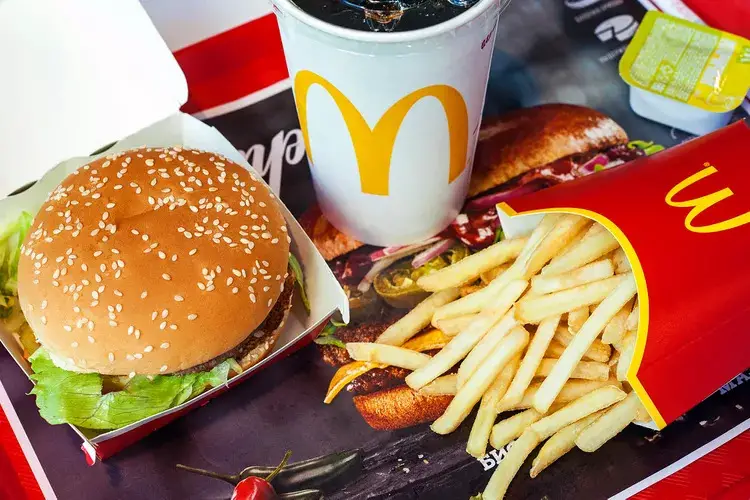McDonald’s, identifiable by its distinctive golden arches, has become synonymous with fast food globally, catering to millions every day across numerous countries. Its ubiquity symbolizes the far-reaching influence of fast-food culture.
However, in a world seemingly obsessed with quick and convenient meals, several nations have chosen to abstain, keeping McDonald’s out of their borders. Is it a bid to preserve their unique cultures, an emphasis on health consciousness, or are there more layers to the story?
Top 9 Countries That Banned or Resisted McDonald’s & Why
Many countries, while embracing globalization, have resisted the inclusion of McDonald’s, each citing unique reasons ranging from economic to cultural nuances. Here are the most notable countries that have opted out of the McDonald’s craze and the assorted reasons behind their decisions.
- Iran: After the 1979 revolution, Iran severed its relationship with many Western companies, including McDonald’s, due to the perceived symbolic representation of Western culture and capitalism, which was at odds with the country’s new Islamic and anti-Western stance.
- Macedonia: In 2013, Macedonia saw the closure of its seven McDonald’s outlets. Although the official reason remains unclear, it is widely believed to be due to a dispute between McDonald’s European office and the Macedonian franchisee.
- Bolivia: Bolivia bid farewell to McDonald’s in 2002, with citizens citing a preference for traditional and local cuisine over fast food. The departure symbolized a rejection of mass-produced, fast, and cheap food, reflecting a deeper cultural value placed on the preparation and enjoyment of food.
- Bermuda: Bermuda has a law banning foreign fast-food franchises, aiming to preserve its national identity and protect local businesses from overwhelming international competition. The law, however, does not prevent the operation of foreign food restaurants if they are located within a hotel.
- San Marino: This small republic decided against McDonald’s to preserve its culinary tradition and to protect its local food establishments from the overwhelming global competition that usually accompanies the entrance of such a giant fast-food chain.
- Montenegro: Montenegro has resisted the establishment of McDonald’s within its borders. The reasons primarily revolve around the protection of local cuisine and local businesses, emphasizing the importance of preserving national culinary heritage and supporting homegrown establishments over international fast-food chains.
- Zimbabwe: The African country doesn’t have McDonald’s due to economic instability and stringent business regulations. The harsh economic environment, characterized by hyperinflation and currency instability, makes it challenging for international brands to establish and sustain operations.
- Bhutan: Bhutan has consciously decided not to allow McDonald’s within its borders as a part of its commitment to preserving its culture and its focus on Gross National Happiness over Gross Domestic Product. Bhutanese policies strongly emphasize national values, environmental conservation, and cultural preservation, which supersede the perceived benefits of hosting international fast-food chains.
- Barbados: Although Barbados had a McDonald’s, it closed down after just six months of operation due to a lack of interest and poor sales, reflecting the Barbadian preference for local cuisine over standardized, international fast-food offerings.

The Sneaky Health Risks You Need to Know About Eating Fast Food
Fast food consumption has been consistently linked to a variety of health risks. Below is an elucidation on the potential health hazards, backed by scientific studies and research, revealing the dark side of the fast-food culture.
- Obesity: Fast food is infamous for its high calorie, sugar, and fat content. A study published in the Journal of Preventive Medicine and Hygiene found a direct correlation between fast food consumption and obesity due to the high caloric density and the large portion sizes.
- Heart Disease and Stroke: The excessive saturated and trans fat in fast food can elevate cholesterol levels and, over time, lead to heart disease and stroke. The American Heart Association has highlighted the connection between fast food consumption and heart-related ailments due to these unhealthy fats and high sodium content.
- Type 2 Diabetes: The high sugar and fat content in fast food can lead to insulin resistance, a key factor in developing Type 2 Diabetes. A study published in Circulation found that regular consumption of fast food, twice a week or more, was strongly linked to both Type 2 diabetes and metabolic risk.
- Depression and Mental Health Issues: The lack of essential nutrients and the high sugar content in fast food can lead to mood swings and depression. A study published in the Public Health Nutrition journal revealed a relationship between the consumption of fast food and the likelihood of developing depression.
- Poor Nutritional Value: Fast food often lacks essential nutrients like vitamins, minerals, and fiber which are vital for proper body function. Consuming nutrient-deficient food can lead to malnutrition and nutrient deficiency diseases, affecting overall health and wellness.
- Cancer: Some studies suggest a potential link between fast food consumption and increased cancer risk due to the presence of harmful chemicals and compounds used in processing and cooking.

My Personal RX on Banning Fast Food in Your Life
The pervasive influence of fast food in today’s diet presents daunting health risks, contributing to the surge in lifestyle-related conditions such as obesity, type 2 diabetes, and heart disease. As a physician, it’s disconcerting to witness the toll a fast-food-centric lifestyle exacts on health and well-being, emphasizing the urgent need for sustainable, nutritious alternatives. A conscious shift towards wholesome, balanced eating is imperative to reverse the damaging health impacts of excessive fast-food consumption.
- Embrace Home-Cooked Meals: Opting for homemade meals gives you control over ingredients and portion sizes. It’s a great way to ensure balanced nutrition and avoid unnecessary additives and preservatives. Explore the fun and easy recipes in my Superfoods Cookbook to infuse variety and nutrition into your meals!
- Favor Fresh, Whole Foods: Incorporate a diverse range of fresh fruits, vegetables, lean proteins, and whole grains into your diet. These foods are nutrient-dense and are crucial for maintaining optimal health.
- Choose Grilled Over Fried: When eating out, choose grilled or baked options over fried. Grilled and baked foods generally have less fat and fewer calories compared to their fried counterparts.
- Stay Hydrated with Water: Choose water or other low-calorie beverages over sodas and high-calorie, sugary drinks. Staying well-hydrated is essential for overall health, and water is the best choice for staying hydrated.
- Be Informed and Read Labels: Educate yourself about nutritional information and read food labels when available. Being informed enables better decision-making when it comes to food choices.
- Detox and Rejuvenate Naturally: Embrace the Detox Bundle, featuring Liver Support and Fiber Complete supplements, to cleanse your body from the inside, helping to counteract the effects of a poor diet. Start your detox journey here!
Sources:
- Bell, A. (2023). 13 Countries You Won’t Find A McDonald’s. Mashed. https://www.mashed.com/1302283/countries-wont-find-mcdondalds/
- Jones, M. (2022, December 2). 9 countries that have banned McDonald’s. Reader’s Digest. https://www.rd.com/list/countries-banned-mcdonalds/
- Mohammadbeigi, A., Asgarian, A., Moshir, E., Heidari, H., Afrashteh, S., Khazaei, S., & Ansari, H. (2018). Fast food consumption and overweight/obesity prevalence in students and its association with general and abdominal obesity. PubMed, 59(3), E236–E240. https://doi.org/10.15167/2421-4248/jpmh2018.59.3.830
- Mazidi, M., & Speakman, J. R. (2018). Association of Fast‐Food and Full‐Service restaurant densities with mortality from cardiovascular disease and stroke, and the prevalence of diabetes mellitus. Journal of the American Heart Association, 7(11). https://doi.org/10.1161/jaha.117.007651
- Odegaard, A. O., Koh, W. P., Yuan, J., Gross, M. D., & Pereira, M. A. (2012). Western-Style fast food intake and cardiometabolic risk in an eastern country. Circulation, 126(2), 182–188. https://doi.org/10.1161/circulationaha.111.084004
- Sánchez‐Villegas, A., Toledo, E., De Irala, J., Ruiz‐Canela, M., & Pla-Vidal, J. (2011). Fast-food and commercial baked goods consumption and the risk of depression. Public Health Nutrition, 15(3), 424–432. https://doi.org/10.1017/s1368980011001856





















